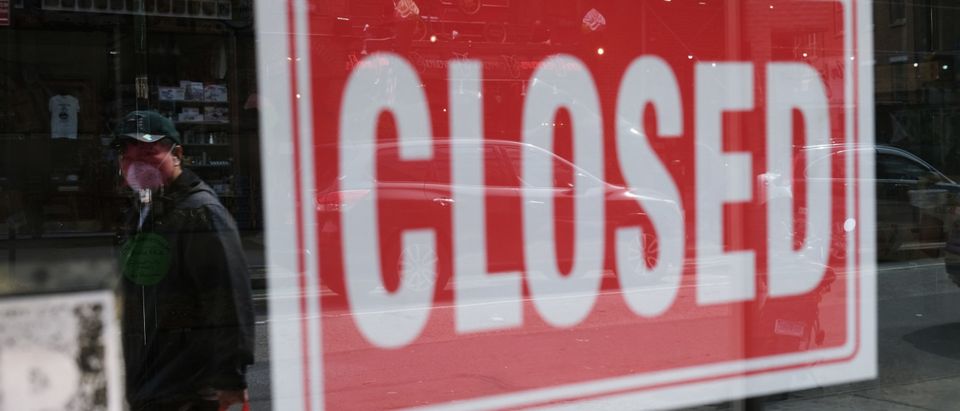Supreme Court Justice Sonia Sotomayor’s comparison of human beings to machines in the SCOTUS vaccine mandate decision revealed far more of modern liberalism’s pathologies than she likely intended. It exposed the reductionist and materialistic heart of the liberal project.
Sorry, Madame Justice, but humans are not machines. With proper maintenance and a source of earthly power, machines can operate indefinitely. They have no need of rest and no need for meaningful interactions with other machines. They can just keep producing material things (including the rearranging of electrons) 24/7.
There was a time when the heart of American liberalism beat in synchrony with human hearts. And the reason liberalism worked was that it was constrained and undergirded by the robust, Judeo-Christian culture through most of American history. Private property and individual freedom incentivized economic growth, but the rule of law that rested on Biblical values channeled that freedom and the prosperity it generated for the common good while restraining the animal spirits of greed and selfishness to which all humans are prone.
The father of classical liberalism, John Locke, himself acknowledged the God of the Bible and said that there are limits on liberty. He said that men and women are not free to destroy themselves or others. But that is exactly what extreme liberalism has been attempting to do lately.
Today, our liberal political economy is suffocating Americans with never-ending pressures to consume, clogging their homes with too many material things that wear out too fast, overburdening their lives with too many frenetic activities and providing them with too few periods of peaceful, contemplative rest.
Unlike machines, humans are flesh and blood. Although they face mortality in this world, they are eternal spiritual beings. They need nourishment and rest. They need refreshing time off to spend with family and friends. And they need to be in communion with God for spiritual maintenance and enjoyment.
Scripture tells us that God created humans on the sixth day. And after that arduous effort, God Himself rested on the seventh day. And God tells us that humans need to rest on the seventh day, the Sabbath, too.
For the first couple of hundred years that Christians lived on the North American continent, they kept observing the Sabbath as they had done in the old country. The Sabbath was ordained by ecclesiastical authorities and eventually enforced by secular governments in America through a series of statutes that came to be known as “Blue Laws.”
Why they were called “Blue” is still a mystery, but the fact is that every state in the Union had them on the books, and enforced them, until well into the 20th century. A few of them are still in effect in a handful of states.
What was life on the Sabbath like under Blue Laws? Well, it meant that Sundays were quieter, set apart from the other six days of the week. Shops, bars and restaurants were closed. Maybe a few pharmacies were open for a few hours for emergencies, and first responders had to work, but most everything else was shut down.
Places of worship were open, of course, as were parks and other places for recreation. In 2022, the closest we might come to that kind of shut down is at Thanksgiving and, maybe, on Christmas Day.
Today more than ever Americans need a break, once a week, every week from the madness of 21st century life. Time off from to-do lists and emotionally manipulative online rabbit holes. Poor and lower income Americans, especially, need that break — a reprieve from the burden of sometimes menial, backbreaking and soul crushing work in a 24/7 economy.
America needs to reestablish those Blue Laws to force the liberal economy to take a breather.
American children need a break, too, especially having suffered so much from pandemic measures. They need to play. And they need quality, explicitly non-productive, time with their parents, extended families, churches and friends.
Proponents of ending Blue Laws in past decades argued that the Sunday Sabbath could be a “moveable feast” and that it could be observed on any day of the week. But that missed the point, which was that to benefit one and all. Additionally, to be predictable for planning purposes, everything had to come to a halt on Sunday. Of course, another benefit was that church attendance would increase. Certainly, no honest person living through the moral and spiritual chaos that defines daily life today in the U.S. could object to that.
Imagine shutting down social media, online pornography — and even Amazon — for 24 hours once a week. Those modestly paid workers at Amazon and elsewhere would get to spend more time with their families and, by limiting their labor supply, their wages would go up. And the many corrosive effects of the metaverse could be at least somewhat mitigated.
Critics of the old Blue Laws complained that, over the years they were in effect in the 18th, 19th and 20th centuries, politicians granted so many carve-outs, waivers and exemptions that they became unfair.
That would certainly be one of several issues to deal with in the legislative process of reestablishing them. But the benefits of Blue Laws ultimately outweigh any temporary or minor downsides. And politicians may find that campaigning to establish a truly restful and refreshing weekend will be a hit at the polls this fall.
James M. Roberts is an economist and retired Foreign Service Officer.


